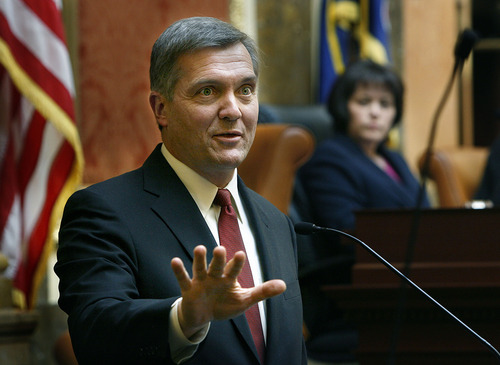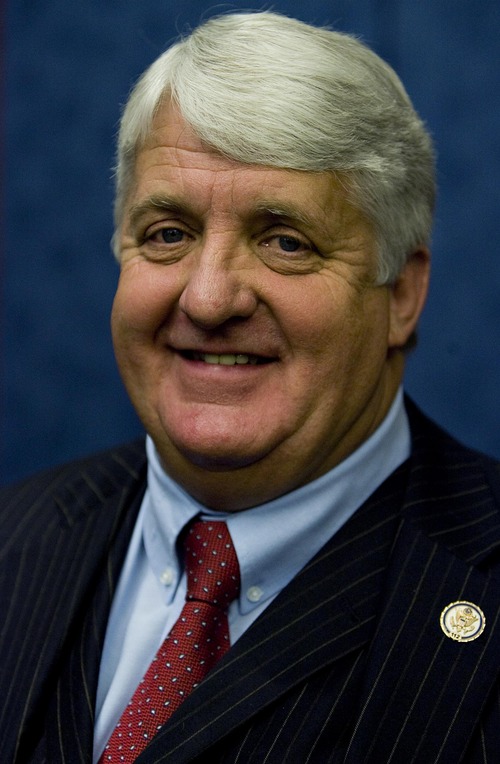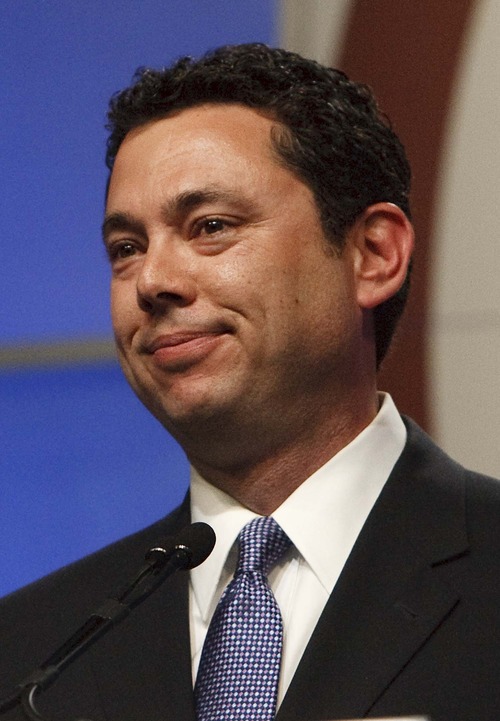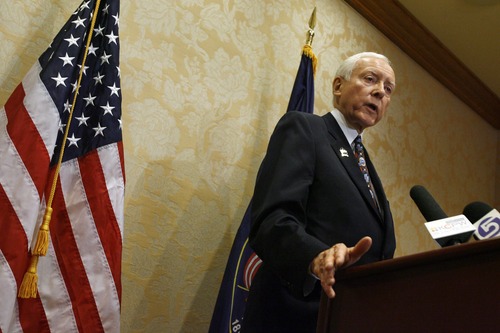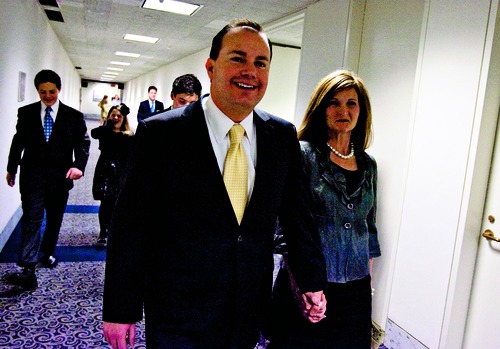This is an archived article that was published on sltrib.com in 2012, and information in the article may be outdated. It is provided only for personal research purposes and may not be reprinted.
Washington • All four of Utah's Republicans in Congress say they won't stray from a pledge against raising taxes as the government nears an austerity crisis in which dramatic cuts could slash federal programs.
Some Republicans nationally are distancing themselves from a signed pledge with Grover Norquist's Americans for Tax Reform that they wouldn't vote to raise taxes, the crux of the fight now in Washington over how to avoid a so-called fiscal cliff.
But while Sens. Lindsey Graham, Bob Corker and Saxby Chambliss say they're not bound by the long-ago pledge, Utah's Sen. Orrin Hatch says he's holding to the promise.
"I think Grover Norquist is one of the best people in Washington," Hatch told The Salt Lake Tribune this week. "It's not Grover Norquist; it's people who realize that we can't just keep raising tax rates when they're not willing to do anything about spending."
Actually, President Barack Obama has said he is willing to examine entitlement programs, such as Medicaid and Medicare, if Republicans are willing to look at letting tax cuts for the richest Americans expire.
Hatch said he's willing to find more revenue, specifically through closing tax loopholes. "You don't have to raise rates," Hatch said.
Utah's other Republican members said the issue isn't about Norquist but about holding the line on taxes that are already too high.
Sen. Mike Lee says there's no chance he would support raising tax rates, reaffirming a vow he made during his bid for office in 2010.
"My pledge isn't to Grover; it's to the people who elected me," Lee said. "Those people who elected me, the voters in Utah, found that to be an important consideration, that I don't think the solution to our current problems is raising taxes."
The nonpartisan Congressional Budget Office said earlier this year that tax rates in 2009 — the most recent year for which such figures were available — were the lowest in the three decades it has tracked them. Taxes averaged about 17.4 percent for households that year, a trend that started in the Bush administration and continued into Obama's first year.
Several members of Congress say they will buck the pledge and boost taxes if Democrats will agree to cut spending.
"I care more about my country than I do about a 20-year-old pledge," Chambliss, a Georgia Republican, told a television station in Macon, Ga. "If we do it his [Norquist's] way, then we'll continue in debt, and I just have a disagreement with him about that."
Rep. Rob Bishop said his pledge not to raise taxes isn't about Norquist — though he did sign the Americans for Tax Reform as a "formality" when he first ran for office. But the Republican congressman says he's not about to raise tax rates.
"I don't think I have a chance of moving off that," he said.
Rep. Jason Chaffetz has said he has no plans to sign any more pledges — he committed to the Norquist promise in 2008 — but he didn't back away from his vow to not raise taxes.
"I signed it originally because I believed it. It had nothing to do with Grover Norquist," Chaffetz said. "I don't think we are one good tax increase away from prosperity in this nation."
Utah's incoming member of Congress, Republican Chris Stewart, did not sign any pledges in his bid for office and says he doesn't plan to do so. He doesn't intend to raise taxes, either.
"We always said we're not signing any pledges," Stewart said. "We want to go back and have a clean slate."
That said, Stewart, like his Republican colleagues from Utah, wants to look at tax loopholes and other "revenue enhancements," a fancy phrase for increasing the amount of tax collected without hiking the rate.
Rep. Jim Matheson, a Utah Democrat, did not sign the Norquist pledge.
For his part, Norquist stressed this week that Republicans in Congress need to stay clear of supporting any tax increase.
"If the Republicans lose in such a way that they have their fingerprints on the murder weapon, then you have a problem," Norquist said at a Politico breakfast event.


